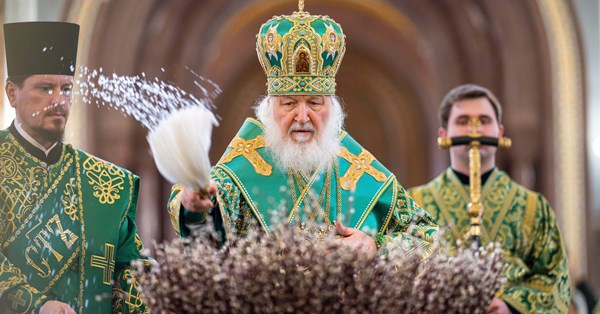ESTONIAN legislators have voted, by 60 to 13, to amend the Church and Congregations Act, making it mandatory for the Estonian Christian Orthodox Church, which has ties with Moscow, to cut them permanently. Failure to comply could lead to a court order to ban the Church’s activities.
The changes, proposed by the Estonian government and argued as a national security necessity in response to Patriarch Kirill of Moscow’s support for Russia’s war in Ukraine, were passed on 9 April.
The Russian Ministry of Foreign Affairs described the vote as an “unprecedentedly aggressive and illegal decision”, and Patriarch Kirill of Moscow appealed to the other local Churches and the international community.
Writing to the Orthodox Primates and religious leaders on 11 April, including the Archbishop of York and Pope Francis, the Russian Patriarch appealed for condemnation by saying: “I count on your brotherly support during this difficult time for Estonian Orthodoxy. This law, stripping it of legitimacy, violates the fundamental principle of freedom of conscience and religion, guaranteed by the Constitution of Estonia and relevant international agreements.”
The Estonian Interior Minister, Igor Taro, said that the authorities were committed to guaranteeing freedom of religion of its citizens, while emphasising the “changed security situation” which calls for such state intervention needed to shield Estonia from foreign influence.
Apart from the Estonian Christian Orthodox Church — ECOC, formerly known as the Estonian Orthodox Church: Moscow Patriarchate — the changes also affect the members of the Pühtitsa Russian Orthodox Convent, which is directly managed by the Moscow Patriarchate. In response to the adopted law, its members signed a petition to the Estonian President, Alar Karis, asking him not to promulgate the law, which is the last step before it comes into force.
Abbess Filareta rejected the government’s reasoning for the law, reaffirming loyalty to Estonia and emphasising that her community “does not engage in any form of thinking or action that would endanger or harm anyone’s safety. A change in jurisdiction is an internal matter of the Church. Yet we are being forced to break all canonical rules and to unilaterally place ourselves under the jurisdiction of the Ecumenical Patriarchate of Constantinople,” ERR reported.
In March, Metropolitan Stephanos, Primate of the Estonian Apostolic Orthodox Church, offered the creation of a special vicariate within his Church for the members of the ECOC, as a way of resolving the church-state tug of war (News, 28 March).
The possibility of uniting with the smaller Estonian Apostolic Orthodox Church, which functions as an autonomous Church overseen by the Ecumenical Patriarch, Bartholomew, was “out of the question”, the ECOC representative told the Church Times.
“This is a matter of canonical and ecclesiastical significance that cannot be decided under political pressure or through legislative means. Such decisions must be made freely, in accordance with church traditions and canonical law, not under state coercion.”
















